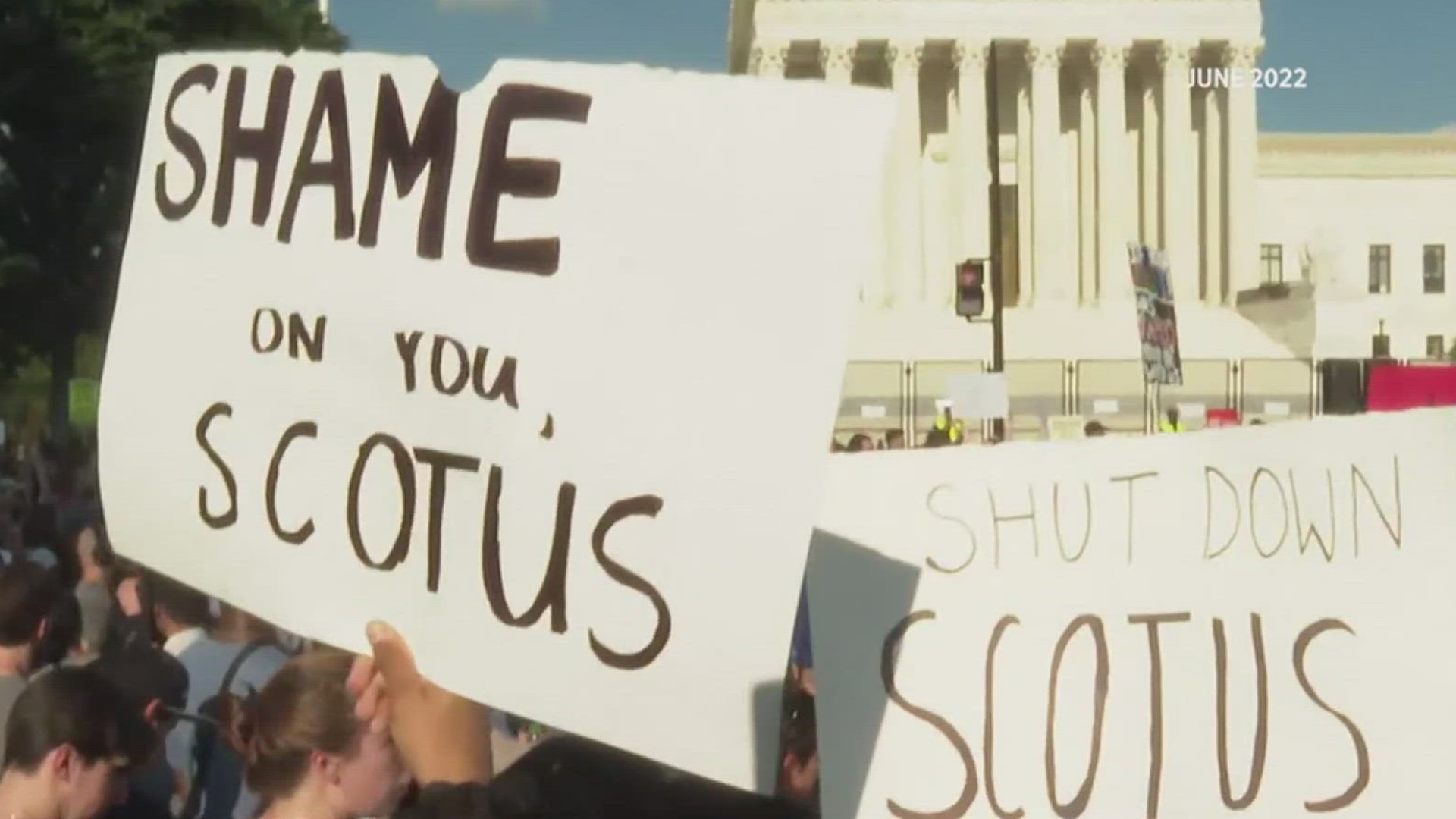HARRISBURG, Pa. — On June 24, 2022, 50 years of legal precedent was upended when the Supreme Court ruled on Dobbs v. Jackson. In a 6-3 vote, the ruling ended a federal right to abortion and gave pro-life advocates a long-awaited victory.
“I think historically we’ll look back at this as an amazing day for women, for vulnerable, unborn children, and families," Alexis Sneller, a policy analyst for the conservative Pennsylvania Family Institutue, said.
With the question of abortion being kicked back to the states, Sneller said Pennsylvania’s pro-life movement has a lot of work in front of it. Pennsylvania allows for abortions up to 24-weeks into pregnancy.
Sneller, along with other pro-life advocates and politicians, want to see tighter restrictions to abortion in the Commonwealth.
"We recognize how far along and developed an unborn child is, and that’s past viability when a baby can survive outside the womb," argued Sneller. "Yet, it’s still legal to take that child’s life."
Currently, 14 states have banned most abortions following the Supreme Court's ruling. Among Pennsylvania's neighbors, West Virginia has banned all abortions, with an exception to rape and incest, while Ohio had its six week abortion ban blocked by a judge.
Recent data shows a 15% to 20% increase in patients traveling to Pennsylvania for abortion care. Planned Parenthood of Pennsylvania believes those numbers will continue to climb next year.
“As we continue to see more-and-more states ban abortion, patients are going to have to seek care elsewhere, and many of them are looking to Pennsylvania," Signe Espinoza, the executive director for Planned Parenthood Pennsylvania Advocates, said.
While abortion is still legal in Pennsylvania, questions over access remain. Currently, there are only 18 abortion clinics open in the Commonwealth.
Espinoza is calling on state lawmakers to continue assuring access to abortion care.
“We can sit here and say, ‘we’re an access state,’ but at some point, they’re going to have to question how we’re going to do this," Espinoza argued . "The doors remain open, but when we’re thinking about the impact across the country, it’s going to be really difficult for Pennsylvania and health centers."
Quinn Yeargain, an assistant professor of law at Widener University Commonwealth Law School, said the ruling still has significant political implications.
A recent poll from Gallup shows support for abortion rights continuing to increase among Americans, with a record-high 69 percent believing first-trimester abortions should be legal.
“I think that part of this is that we’re not used to operating in this post-Roe world, and so people are feeling uncomfortable," Yeargain said.
Abortion played a key role in the 2022 midterms. In Pennsylvania, Democrats used the issue to help Josh Shapiro defeat Republican Doug Mastriano, who endorsed a six-week abortion ban. The issue also helped Democrats secure a majority in the General Assembly.
Yeargain said the debate on abortion rights is far from settled and that it will be a defining issue in state and national politics for years to come.
“The issue being settled legally does not settle the issue socially," Yeargain said. "This looks like an issue like almost any other political issue, where you elect Republicans and they’ll do one thing, you elect Democrats and they undo that and try something else, and the cycle continues.”

